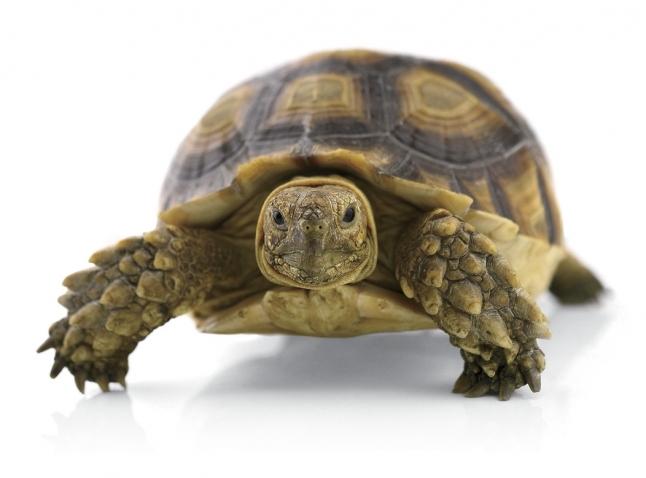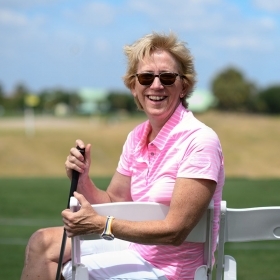I started running when I was dating my husband. That’s the kind of thing that can happen when you fall in love with an athlete. He asked me to join him on a jog, and pretty soon, he was training me, and I was running behind him on the path, yelling, “Hi-ya! Hi-ya! Hi-ya!” I guess that’s how he trained his teammates in college. What had worked for them, however, was less effective on me. After some sharp words, we recalibrated. I kept running.
The summer we were engaged, I ran my first Boilermaker, a 15K race in his hometown of Utica, N.Y. I could have hung up my shoes then and there, but I liked the idea of continuing to try. I liked the unlikeliness of my running. Even so, from that day to this, I have been terrible at running. The first mile always feels like an awful idea. I am not beautiful when I’m hot and sweaty. But now, 20 years in, I like it even though I never seem to get any better. Still, I keep running and now I’ve even joined a running group, which does sound like the kind of thing a runner would do.
Three years ago, a really dear friend died suddenly. She was the nucleus of a group of moms and neighbors, and for a year we scattered in our grief. Two years ago, one of the other moms rallied some of us to join a local running group. We met at a gym near my house at 5:30 A.M. on Tuesdays and Thursdays (I know! I could hardly believe it myself!) and at 7 A.M. on Saturdays. It helped us with our grief, and I got a bit more fit. Now, I’m the last one of us still in the group.
And I am the worst.
I mean, well and truly the worst runner in the group.
And it’s hard to be the worst. Every time I meet the other runners, I have to remember not to compare myself with them. I am the only one with a tummy. And my pace—my goodness!—I won’t confess it here, but let’s say it’s somewhere between “Oh, so basically a walk” and “Well, at least you’re out there!”
Except that I really like the other runners. And they like me. And it’s fun to come back from a 45-minute run and stand on the sidewalk while the commuters race to the train and stretch and plank in a group like schoolchildren. And running makes me happy. And it’s humbling, in a good way, to remember that, like so many other things in life, it’s not that we are aiming to be the best, but that we are just doing them.
I don’t get caught up in competitiveness over mothering or cooking or decorating. I’m OK with where I stand in those areas—I’m only aiming for competence, pleasing myself, doing right by my children. But running is a sport and a competition. You set a distance, and you set a pace, and you meet it or you don’t. Other people beat and pass you. And it’s hard, when faced with something that’s so measurable, to let go of the hopes and expectations of being any good at all even as you work to improve.
One day last spring, I ran six miles. Afterward, I felt wrecked for the whole day. A week later, I ran the same distance and route and was only pretty tired. That felt like a victory. But the following week, there was a 10K race and, judging by my time, I could see that I would be the last on the course. (I came in second-to-last the year before.) After a hard year, my ego just didn’t have the elasticity to be cheered by a bunch of folks who lapped me ages ago. I ran solo. I had mixed feelings about this. My coach, who is a rock star, said, “Why do you care? You’re a grown-up.” And then, when I told her more, she said, “I get it.”
All of this, I think, I tell myself, is going to help me be a better and more compassionate teacher, friend, person. Understanding what it means to persist even when you’re wildly behind the pack isn’t my favorite lesson, but it seems like a good one.
When she is not out pounding the pavement, Anne Fernald ’88 teaches Virginia Woolf and the literature of World War I at Fordham University.


